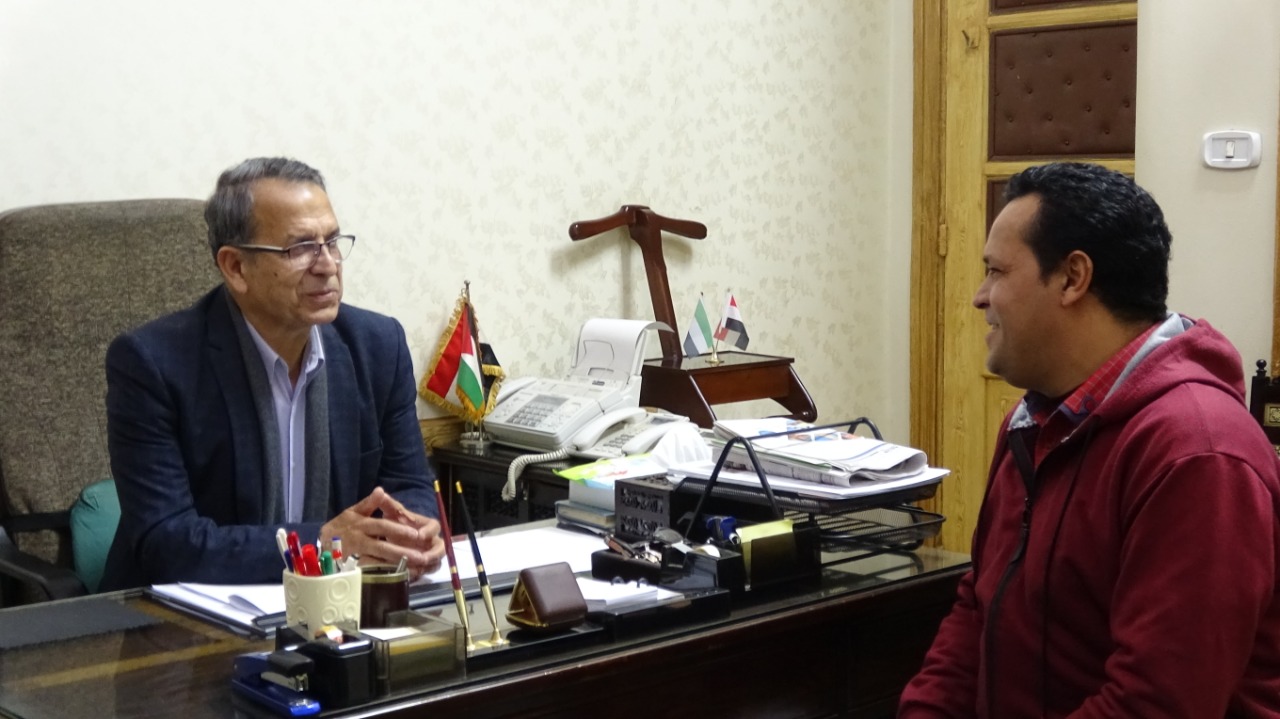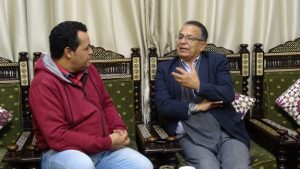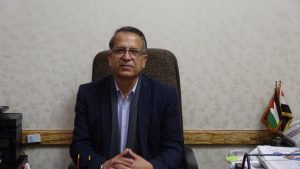Daily News Egypt was interviewing Dr. Mohamed Ghareeb, Secretary General of Fatah Movement in Cairo, to discuss the ongoing liberation movement in the West Bank and Gaze Strip, the ongoing strife with Jerusalem, and Palestinian’s right of return, and answered some important questions.
Where does the Palestinian reconciliation stand and who is disrupting its completion?
Palestinian reconciliation has a high priority, not only in the Fatah Movement, but also for most Palestinian factions, and this is what we emphasize to our brothers in Egypt who sponsor the reconciliation file, especially under the harsh conditions in which the Palestinian national project is exposed to. It is based on the principle of independence and the establishment of a Palestinian state with Jerusalem as its capital. Egypt tries as much as possible and makes great efforts to alleviate the suffering of the Palestinian people, and to support the Palestinian people in all fields. Fatah, for its part, has given Egypt’s approval since 2018 to implement the reconciliation agreement signed in October 2017, which was also sponsored by Egypt. It has basically signed the reconcile- agreement in April 2011, essentially envisioned basically signed the reconciliation agreement in April 2011, which essentially envisioned he empowerment of the national reconciliation government, currently formed with the approval of all Palestinian factions, including Hamas. This is so it plays its full role in the Gaza Strip. We are concerned with ending this division now, because it represents a big push for achieving the Palestinian national project and Palestinian unity, which is considered a source of strength for the Palestinian people. They were exposed to harsh conditions after the unjust decisions of Trump against the Palestinian case. It is against many international resolutions and projects that have recognized the right of refugees and East Jerusalem as the capital of the Palestinian state.
But Hamas has also agreed to the reconciliation, so why hasn’t it been pushed forward? Hamas has already declared its support for the October agreement and the full empowerment of the government of reconciliation. But nothing has been done. There was the attempt to assassinate the prime minister of the consensual government, along with the intelligence chief and several other incidents in Gaza. Hamas is responsible for those actions because they control the Strip.
Are there regional and international forces trying to block reconciliation?
of course, and we have seen the money that has flowed into Gaza with the lack of reconciliation.
Has the relationship between the Palestinian Authority and the US witness any tension as after the recent decisions?
Quite simply, let me say that the issue is not so much a tension as much as it is a matter of rights, legitimacy, and international resolutions. America assumes that it’s supposed to be the primary sponsor of the peace process. This is what happened with the former US government and administration, which was trying to play the role of sponsor and trying as much as possible to show itself as a fair and honest sponsor.
Has Trump’s administration ruled out the possibility of resolving the Palestinian issue?
What happened after Donald Trump took over, i.e. declaring Jerusalem as the capital of Israel, destroyed America’s role as a sponsor of the peace process. We have all heard President Abu Mazen’s speech at the United Nations, which made clear the seriousness of what the Trump administration has done.
Do you think the so-called “deal of the century” is underway?
Even though no written paper or formal presentation of the so-called deal of the century has been presented to us, what is being deliberated in several forums and departments, especially in the American administration, reflects these ideas which we will never accept. This was obviously declared by President Abbas, that he does not accept the deal. The Palestinian people only approved 21% of the historical territories of Palestine, where their country would be established, which is less than what was approved by the United Nations in I947. But Israel and the US are trying to prevent the birth of even this small coun- try. This step is no smaller than the Balfour promise which gave something to someone who did not deserve it.
How do you see Egypt’s stance on those deals being discussed?
The Egyptian stance is noble and was clearly declared by President Al-Sisi, as Egypt acknowledges the international legitimacy of the state and the establishment of a Palestinian state with Jerusalem as its capital.
Speaking of Balfour promise, why hasn’t Britain apologized for it? This question poses itself a lot, especially as Britain has previously apologized for two occurrences in the nineteenth century, the first is famine in Ireland, and the second the slavery crisis.
The march of return was launched last year and are expected to start again. Do you consider this a new uprising?
Of course not, there are big differences, the most important of which is that the march of return was launched to call on the Palestinian people’s right of return. The Palestinian movement was a resounding Palestinian cry against the entire occupation. The march of return started spontaneously, but were leapt and directed to certain political parties and not exclusively Palestinian.
”HOLDING ELECTIONS IS ESSENTIAL AND NECESSARY, AND IT IS CRITICAL FOR ESTABLISHING LEGITIMACY”
Will President Abbas delay holding presidential and legislative elections, especially after the rest of the factions agreed on holding them?
President Abu Mazen’s stance is clear. Holding elections is essential and necessary, and it is critical for establishing legitimacy. The elections should happen in the right way that guarantees the full representation of our people everywhere in the Palestinian territories, especially Jerusalem.
This is the dilemma. The president refuses to hold elections in Palestine without Jerusalem, because this represents our recognition of loss and abandonment, and also because the Palestinians in Jerusalem are not second-class citizens to be denied participation in the. election of their representatives. So, the presidential decree holding elections depends on Israeli guarantees to be held in Jerusalem, and this is what Israel is trying to delay.
Has the tension across the Arab world lessened the focus on the Palestinian cause?
Indeed, this happened to some extent ‘and it is normal. Arab citizens have their priori- ties, but this is not our concern, because it is temporary and it is not the first time that it hap- pens. We also believe that the Palestinian issue is deep and very much on the mind of every Arab citizen, and Egyptian citizens are a good example.
In the past few days, Fatah movement celebrated the anniversary of its launch. What is the message of the movement on that anniversary? bu The Fatah movement, which at re S, started in January 1965, faces many internal and international challenges, fights with its independent national decision, and with a deep belief in its land and homeland Palestine. It rejects the projects like the so-called “deal of the century”, confirming that the fate of these projects is to become history. Any struggle that does not put Jerusalem in consideration is suspicious. Jerusalem is the core of our struggle, existence, history, and future. We pray for the martyrs of the Palestinian revolution and the martyrs of all Palestine, like Yasser Arafat. We assure that his successor, president Mahmoud Abbas, follows his steps. We also pledge to our heroic prisoners that the movement continues, and sacrifices will continue to be made to reach the goals we desire.





